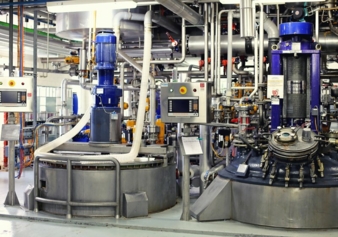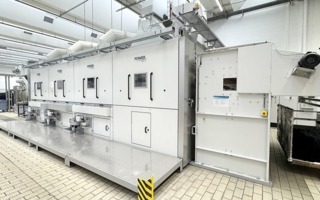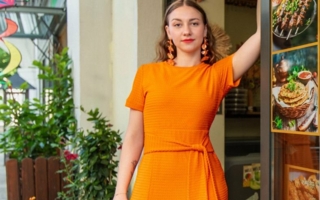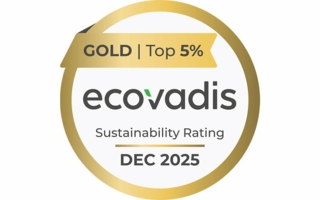17/09/2025 – ITMA ASIA + CITME Singapore 2025
Textilcolor showcases new technologies
The textile industry is one of the biggest consumers of water globally, requiring approximately 93 billion cubic meters annually. This is equivalent to around 4% of the total freshwater consumed worldwide.
The industry is facing increasing criticism as a result and is coming under pressure. Sustainability is therefore no longer just about image, but is a key competitive factor for textile manufacturers. Companies across the entire textile chain with a sole focus on conventional processes will have to address sales issues over the medium term and will be faced with ever greater regulatory pressure. At the trade fair in Singapore, the Swiss company Textilcolor AG is showcasing how textile treatment is still fit for the future. Technologies such as EcoDye and EcoFix enable the company to reduce water consumption by up to 71 %. These processes also allow the amount of fossil-fuel energy used to be reduced by up to half of the previous level across the entire production process. The results achieved speak for themselves. They allow a significant reduction in the carbon footprint and provide an advantage in terms of innovation for an industry currently in the midst of an ecological transformation.
Future developments are increasingly focused on sustainable
Under the EcoDye label, a process has been developed which is specifically tailored to the requirements of PES dyeing processes. Textilcolor AG was the first company in the world to successfully launch this product onto the market. The optimisation and enhancement of EcoDye has continued ever since in order to guarantee a sustainable and efficient dyeing technology and to facilitate its ongoing development. It reduces water consumption by up to 71%, and at least 34% less energy is used in the polyester dyeing (PES) process. These resource savings mean it is regarded as one of the most efficient and environmentally-friendly dyeing systems in synthetic textile dyeing, with the smallest carbon footprint. With the EcoDye process, specific work steps can be removed (e.g. prewash), a shorter heating rate means the dyeing process can be accelerated and subsequent treatment processes can be reduced. Use of this method means that, for the customer, the duration of the process is significantly shorter. One specific advantage for users is that the EcoDye process can be used with pre-existing recipes. All EcoDye components are bluesign-approved. When combined with other technologies from the Swiss company – such as EcoFix and EcoThren, two rapid dyeing processes for reactive and vat dyeing – the reduction in the rinse baths required enables a time-saving of up to 40%. Production output can also be significantly increased, marked reductions in manufacturing costs can then be achieved and product quality can be improved.
Wide-ranging offer covering the entire textile process chain
Textilcolor AG is not only known for manufacturing all products in accordance with strict ecological and sustainability standards. The continual development of new products and solutions is indicative of the company's leading role in the market. These are frequently tailored to the wide range of processing requirements – often in close collaboration with customers. The broad product range covers all steps from pre-treatment, printing and dyeing, finishing and coating, to pigmentation and optical brighteners.
Textilcolor will be at ITMA ASIA + CITME, Singapore 2025 in hall H6, stand A202.




